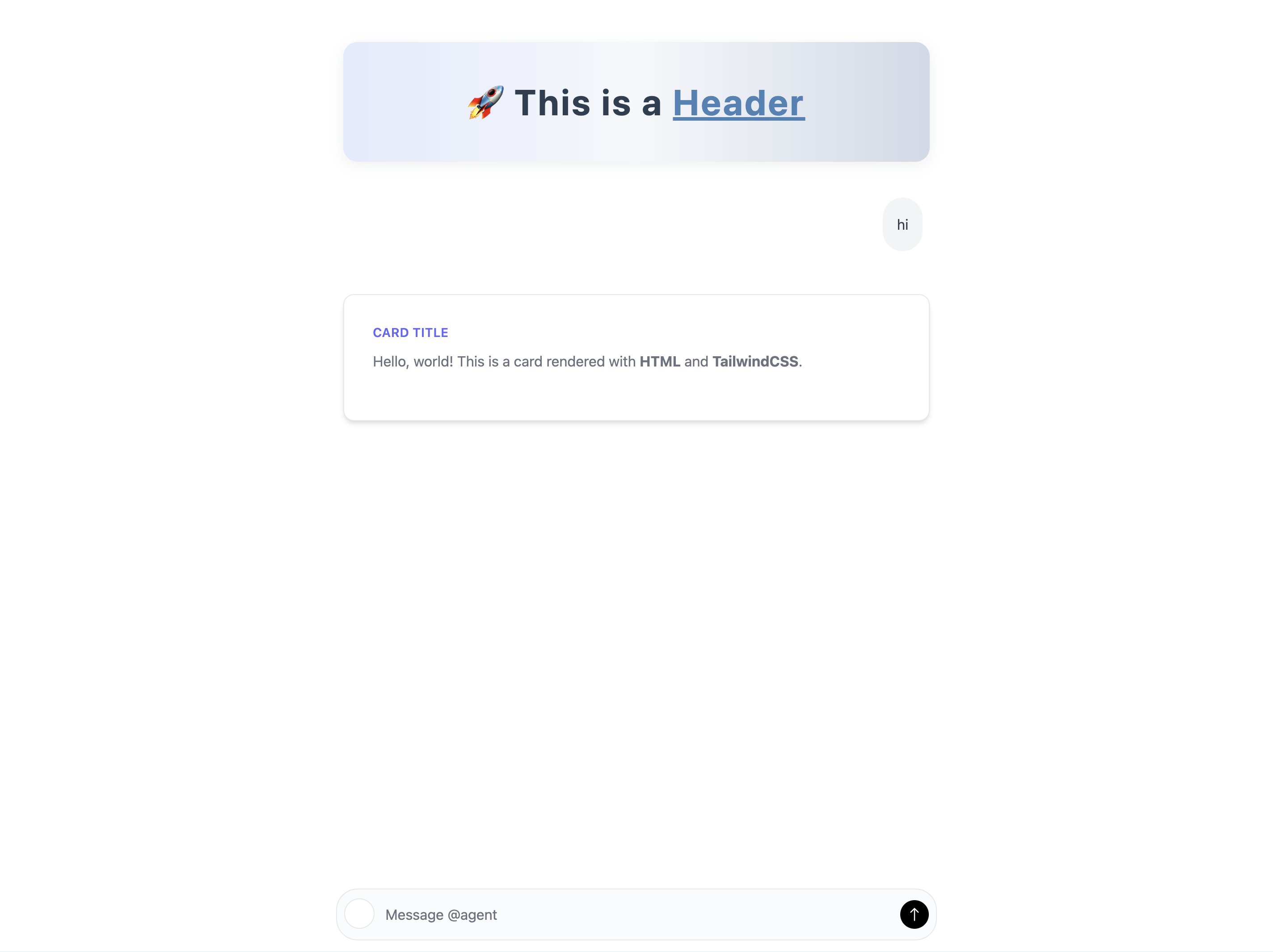My Custom Agent
Welcome to my specialized AI assistant!
Introduction
🚀 This is a Header
 ### Customization Parameters
### Customization Parameters
🚀 This is a Header
🚀 This is a Header
Card Title
Hello, world! This is a card rendered with HTML and TailwindCSS.
 ### Generative UI Tips
* **Progressive Enhancement**: Start with simple text, add rich UI gradually
* **Context Awareness**: Use conversation context to generate relevant UI
* **Error Handling**: Provide fallback content for failed UI generation
* **Testing**: Test your generative UI across different devices and browsers
## Custom Themes
For advanced customization, you can create your own custom UI themes:
### Using Custom Themes
```python
import cycls
agent = cycls.Agent(
pip=["openai", "requests"],
keys=["ak-
### Generative UI Tips
* **Progressive Enhancement**: Start with simple text, add rich UI gradually
* **Context Awareness**: Use conversation context to generate relevant UI
* **Error Handling**: Provide fallback content for failed UI generation
* **Testing**: Test your generative UI across different devices and browsers
## Custom Themes
For advanced customization, you can create your own custom UI themes:
### Using Custom Themes
```python
import cycls
agent = cycls.Agent(
pip=["openai", "requests"],
keys=["ak-